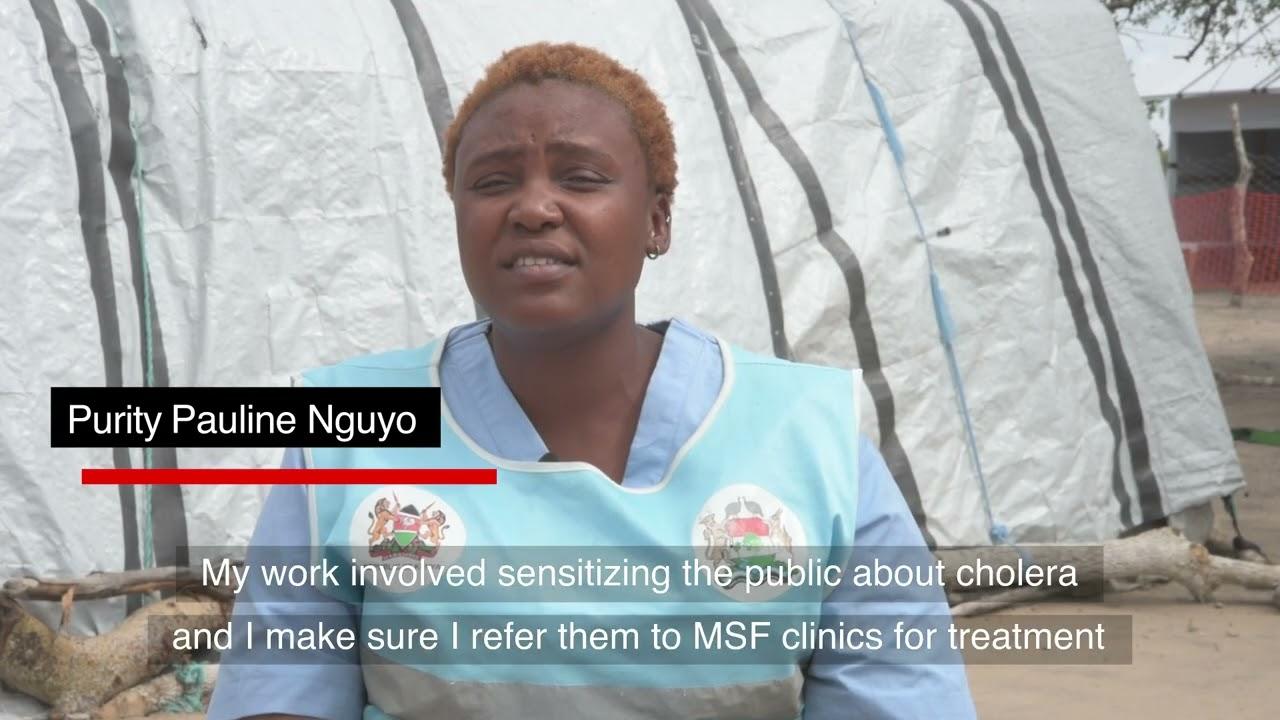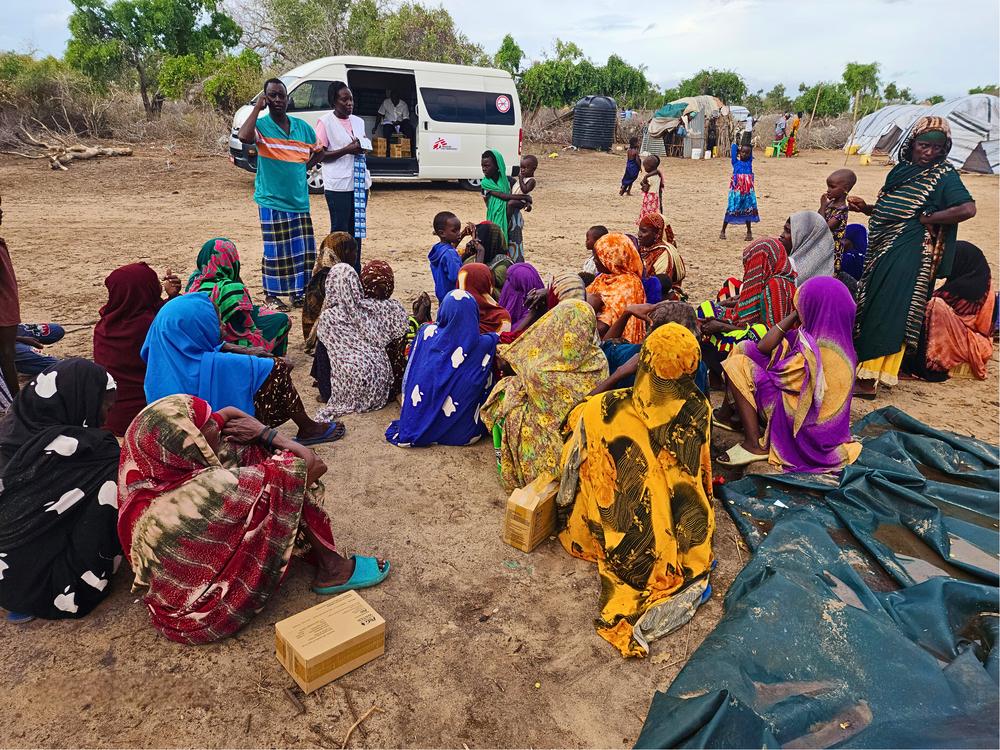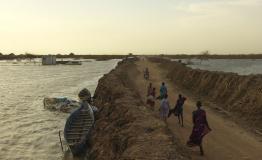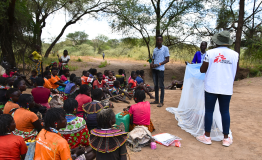In late March 2024, severe flooding forced more than 43,000 people from their homes, and take shelter in 30 internally displaced people camps, disrupting lives and livelihoods in Tana River County. In response, Doctors Without Borders/Médecins Sans Frontières (MSF) launched an emergency response in Garsen town providing medical assistance and delivering essential products to thousands of displaced families in the five biggest displaced people camps.
“Families have lost their homes and possessions, and their access to clean water and sanitation has been severely compromised, increasing the risk of waterborne diseases such as cholera, caused by the contamination of water sources, respiratory diseases ”, says Josiah Kimeli, MSF Deputy Emergency Coordinator “The flooding overwhelmed local resources, making it difficult to meet the basic needs of displaced people”.
The Tana River had swollen dramatically due to heavy upstream rains, resulting in widespread flooding, especially places such as Garen, in the East of the Country. This natural disaster caused significant displacement, loss of life, and destruction of agricultural activities, leading to food insecurity and risks of water-borne diseases.
“The challenges of settling into a camp were above all the cold and water seeping into the shelters in wet weather,” shares Amina Shekhe, forced to leave her home with her family following the floodings. “Our children fell ill because of the cold in the camp and it was difficult for us to reach the hospitals, which were far from where we had found shelter.”
Kenya, and the wider Horn of Africa region, is highly vulnerable to the impacts of climate change. The El Niño phenomenon, a climatic event characterized by the warming of sea surface temperatures in the central and eastern Pacific Ocean, has significantly intensified the flooding in Kenya, amplifying the volume and severity of rainfall.

KENYA: MSF Wraps Up Emergency Flood Response in Tana River County
“Our mobile teams composed of medical staff and water and sanitation experts delivered basic healthcare services, including vaccinations, through outpost and mobile outreach clinics,” said Josiah. “We focused on mental health services, and health promotion activities as well as on improving the access of people to clean water and latrines to help prevent disease outbreaks within the displaced and host populations.” Patients in need of advanced care were referred to higher-level health facilities.
“We have had to leave our homes twice in four months. We lost everything, including our livelihoods, and this has really driven people in the camps into mental distress,” explains Galana Ijema, one of the camp leaders. “With hospitals as far as four kilometers away, having the clinics within the camp has made healthcare accessible to us. I also received treatment when I had malaria.”
To enhance disease surveillance, prevention and management for diseases of potential outbreaks like cholera, measles and malaria, MSF trained 15 department of health staff and 5 MSF staff. MSF also made a one-month donation of medical supplies to Garsen subcounty to enable the provision of medical services and handed over the cholera treatment unit.
Presently, the health conditions have improved and some of the displaced persons have since returned to their original homes. MSF concluded its emergency response in Garsen on 3rd August. Nevertheless, structural efforts need to be undertaken in the future to ensure continuous access to clean water in order to avoid harmful consequences for the region's inhabitants in such situations.
--------------------------
Since the launch of its intervention in Tana River County in response to the consequences of the flooding, MSF teams conducted 7,155 medical consultations to internally displaced people and host communities, including 1,623 children under 5 years old. Moreover, our medical teams manage to provide sexual and reproductive health consultations to 390 pregnant and postnatal women. The health care workers treated people suffering from upper and lower respiratory infections, gastritis, patients presenting symptoms of diarrhoea. Moreover, MSF assisted people with chronic diseases in need for regular treatments, mainly hypertension, asthma and diabetes and carried out 1,309 mental health consultations.



